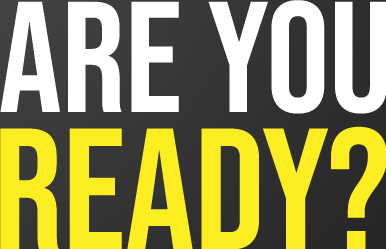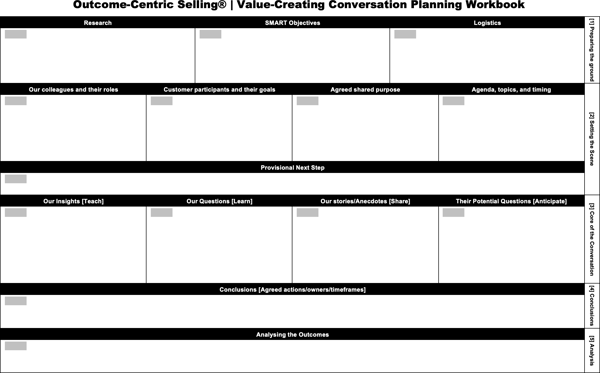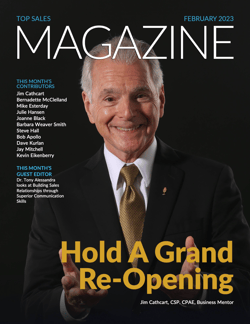Why should salespeople bother preparing for their customer interactions?
February 10, 2023

 There’s been a great deal of research into the dynamics of salesperson-customer interaction over the years, and the results are typically pretty depressing. Studies regularly show that prospective customers regard only a small minority of the conversations they have with salespeople as being a valuable use of their time.
There’s been a great deal of research into the dynamics of salesperson-customer interaction over the years, and the results are typically pretty depressing. Studies regularly show that prospective customers regard only a small minority of the conversations they have with salespeople as being a valuable use of their time.
It’s not much better from the salesperson’s side: most of the interactions they have with potential customers result - at best - in an agreement to continue the dialogue, with the customer declining to extend the conversation being the most common outcome. Only a small minority of conversations actually result in an advance in which both parties commit to moving forwards in a tangible way.
By the way, I’m not talking about cold calls here, but about potentially meaningful interactions in which the customer has already expressed interest in having a conversation.
The outcome gap between the best and worst sales performers is particularly stark: top performers tend to either advance the sale or disqualify the opportunity as a result of their conversations, whereas weak performers tend to either stumble along with a vague agreement to continue the process at best or (more likely) being disqualified by the prospective customer at worst.
Some of this disparity can clearly be attributed to talent or skill. But I’m happy to agree with Neil Rackham (of SPIN® Selling fame) when he concluded that the biggest single difference between the best and worst sales performers was their commitment to invest in preparation and planning.
I’ve had the good fortune to learn from some top sales performers, and I’ve identified five key things that they consistently do better than their weaker colleagues...
[1] They invest time in preparing the ground before the conversation
The most effective sales conversationalists prepare the ground prior to each conversation. They do their research into the prospect organisation - seeking to understand their key corporate challenges, priorities, and initiatives. They map out any existing or past relationships and they review the LinkedIn profiles of the people they will be meeting to try and understand what might be important to them.
They use this research to prepare a hypothesis about the prospect’s likely interests and to set some SMART (specific, measurable, achievable, realistic and timely) objectives for the conversation, but they remain flexible and are ready to adapt their goals in response to whatever they learn in the conversation.
[2] They spend time “setting the scene” at the start of the conversation
Rather than diving straight into a discovery dialogue, the most effective conversationalists invest the first few minutes in building rapport, understanding each participant’s own roles and goals, establishing a universally-agreed shared purpose for the meeting, and agreeing the agenda and timings for the conversation - ensuring that there is enough time to draw conclusions and confirm next steps.
But perhaps the most powerful tactic during this setting of the scene - based on what the salesperson has heard and learned - is to propose and agree a provisional next step that will follow if the mutually agreed objectives and goals are achieved during the meeting.
[3] They ensure the core of the conversation is balanced
To the average salesperson, the piece of preparation that comes most naturally when thinking about the core of the conversation is “what questions do I plan to ask the customer?” - but effective conversationalists know that this is a very one-sided and imbalanced consideration.
In fact, if we are to ensure that the conversation actually creates value for the prospective customer, I always suggest that salespeople start with what they want to teach the customer - and what commercial insights they want to share with them. If we approach every customer conversation with a “first teach, then learn” mindset, we are much more likely to be successful.
In addition to what we want to teach and learn, it’s also very helpful to plan what we want to share with the customer - typically in the form of relevant stories and experiences from other similar customers - as well as anticipating the typical prospective customer’s most common questions and how we might deal with them.
[4] They achieve positive conclusions and agree clear actions/next steps
As I mentioned earlier, a significantly higher percentage of top performers’ conversations result in either the prospective customer agreeing to a meaningful advance or a clean disqualification of the opportunity, whereas their weaker colleagues tend to either drift towards a continued dialogue without any tangible progress, or they get disqualified by the customer.
Effective conversationalists emerge from the discussion having agreed clear actions that satisfy three key tests: each action or next step is specific and unambiguous, there is no doubt about who owns each action, nor is there any vagueness about the date by which each action will be completed.
[5] Analysing the outcomes
Finally, and just as important as all the previous points, effective conversationalists learn from every discussion, share their conclusions with their colleagues, and adapt their behaviour in future conversations as a consequence.
So, there you have it - that’s my recommended approach. I’ve found it to be particularly effective for significant, high-value conversations in complex environments that typically involve multiple stakeholders.
I've developed a conversation planning framework for my clients - you can see an example below. Please drop me a line if you'd like to explore training your salespeople in its use.

This article was originally published in the February 2023 edition of Top Sales Magazine. Every article (and every edition) is a great read - you can subscribe here.



Comments